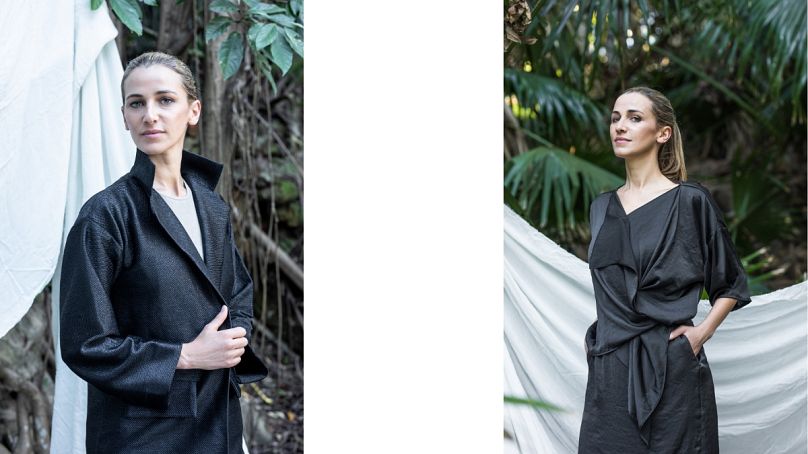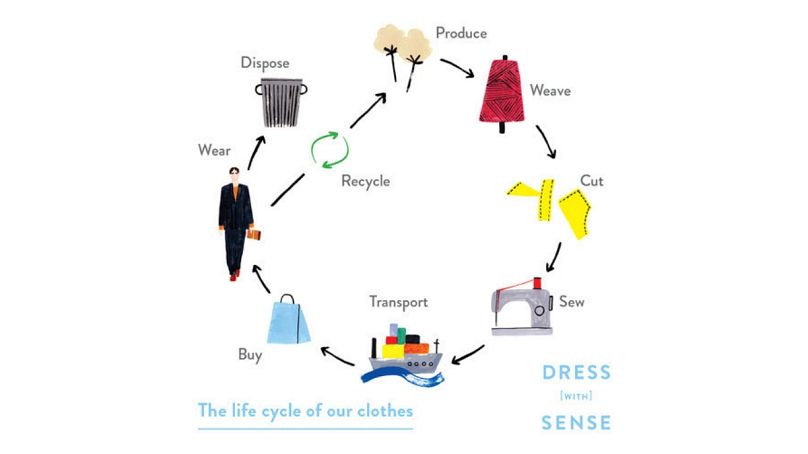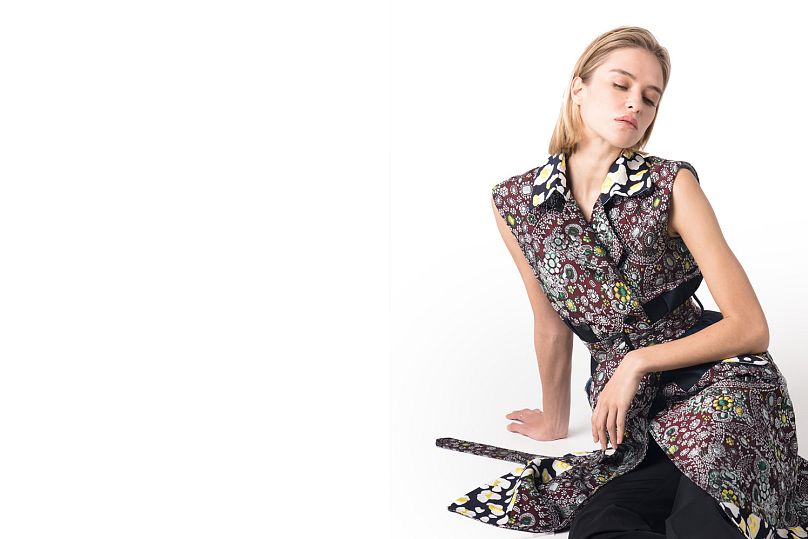Our exclusive interview with eco fashion entrepreneur Christina Dean, on building a new sustainable label and promoting the circular economy.
“We respect fibres and we want to keep fibres in fashion,” explains Christina Dean, summing up the rationale of her new eco-fashion brand, The R Collective, which is based entirely on upcycling textile waste.
 ADVERTISEMENT
ADVERTISEMENT
 ADVERTISEMENT
ADVERTISEMENT
Twelve years ago, Dean founded an NGO based in Hong Kong called Redress to galvanize both consumers and the fashion industry, especially manufacturers, to adopt sustainable practices. Redress mission is to reduce waste by promoting the circular economy. That means stopping waste from being created by educating emerging designers about sourcing, repurposing and minimizing waste, that is, upcycling.
We founded the Redress design award to educate young designers about the circular economy and it now reaches thousands of designers and educators in over 115 universities. In the future, that can slow down the creation of waste. Then, on the other side of the equation, we teach consumers about how to develop a better culture around their closets. In addition to our workshops and social media campaigns, we have a TV series about sustainable fashion called Front Line Fashion and I published a book called Dress with Sense last year,” Dean explains.
The difference between upcycling and downcycling
Besides educating designers and consumers to approach fashion differently, Redress transforms waste which has already been produced. In terms of environmental impact, upcycling is much better than downcycling.
“Of course, you can take glorious, gorgeous fabric of top quality and make it into carpets. That’s downcycling - destroying fabric to convert it into something of lower value. But why would you want see a Chanel jacket become car insulation? That is bad for the environment [because the use and benefit of the natural resources utilized have not been maximized or optimised]. Upcycling is much better because you’re maximizing the fiber’s value. Obviously, companies don’t want to destroy fabrics or clothes. But in the absence of a trusted solution, they’re in a tricky situation. Redress has been working in the world’s largest garment manufacturing zone for more than ten years. Therefore, we have a unique relationship with a lot of brands and manufacturers. For the past six or seven years, we’ve been collecting post-consumer textile waste [and redistributing it to upcyclers when possible]. To put it another way, Redress has been supporting the waste management efforts of brands and manufacturers who want to do the right thing.”
Despite the consumer’s increasing awareness of sustainability, Dean start feeling frustrated about the lack of real environmental progress around 2015. “Everyone was talking about sustainable fashion but there wasn’t much action. Consumers seemed ready to embrace it but who was really delivering?”
There are many ways to make fashion sustainable, for example, social enterprises, water conservation or organic cotton farming. But the highest-impact form of sustainability is upcycling. And no eco fashion brand was making more than a tiny fraction of its output from textile waste.
The fashion industry is one of the biggest GDP drivers on the planet.
On top of that, Dean found herself in permanent fundraising mode for Redress, a registered charity. “The fashion industry is one of the biggest GDP drivers on the planet. I was looking at it thinking, there’s money to be made in sustainable fashion for sure. So I said to myself, ‘Let’s start a fashion brand to fund the NGO.’ And that is why 25% of profits from The R Collective will go to Redress. This way, money made from fashion can fund positive environmental change.”
The R Collective is an obvious, logical extension of Redress’ activity on several fronts. The NGO’s network of garment industry relationships built up over more than a decade of outreach and collaboration in the Pearl River Delta guarantees The R Collective unrivaled access to top quality waste from some of the world’s best brands, mills and manufacturers. The R Collective will regularly feature designers from the Redress design competition, reinforcing the visibility and influence of the award while giving winning designers the opportunity to dress eco-conscious consumers. Most important, however, is demonstrating to all the stakeholders in the fashion system that a brand built entirely on upcycling, the manufacturing dynamic most beneficial to the environment, can be both commercially and aesthetically compelling.
In order to make the case for upcycling, Dean has positioned The R Collective to appeal to a “very modern, fashion-intelligent woman. All the pieces are comfortable but have a fashion edge and permit the wearer to express her own style and imagination. It goes without saying that they are timeless, versatile and durable, so they can be worn for a long time. We’re doing two main ‘core’ collections plus four to six designer collaborations by Redress award alumni per year. The capsules will have more fashion flair but possess the same DNA and appeal to the same customer. The core collection is launching now and our first capsule available in March will be designed by Tess Whitfort, one of the world’s best zero-waste designers. That’s a whole other revolution in design and manufacturing, the way patterns are cut and sizing is graded to utilize the full width of fabric.”
Environmentally conscious Chinese manufacturers
Working with TAL Group, one of the world’s most environmentally conscious manufacturers based in Southern China, Whitfort has designed garments with only 0.05% fabric wastage. Since average fabric wastage is 15%, Whitfort’s collection will be an object lesson in sustainable design. Besides showcasing state-of-the-art technologies which minimise waste, The R Collective is a social enterprise based in Hong Kong employing teenage mothers and elderly seamstresses who have found themselves displaced or marginalized by the inexorable exodus of manufacturing from Hong Kong to China.
Insofar as The R Collective is the commercial embodiment of Redress’ decade-long campaign, Dean herself is the personification of her new brand. Indeed, she is the brand’s main model. But, now, instead of shouting her message from the mountaintops, she’ll be wearing it - literally.
Writer: Joanne Ooi













